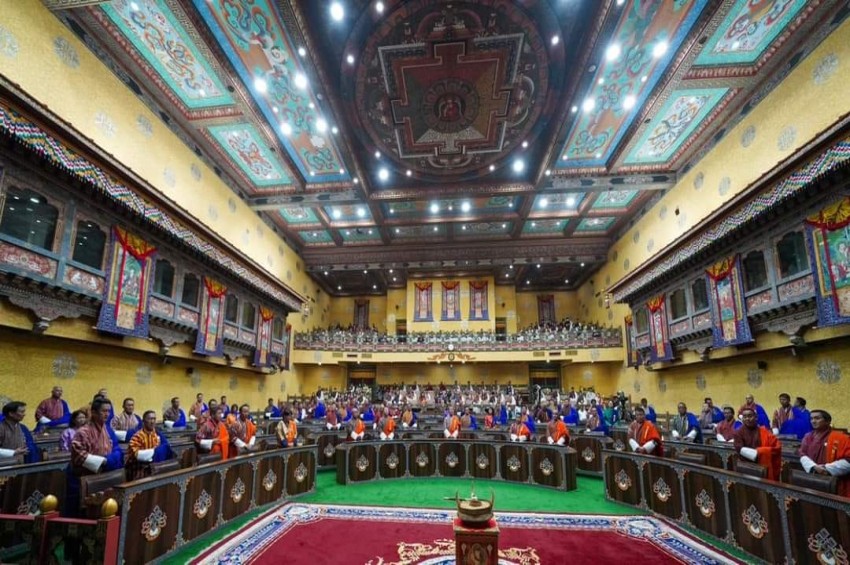In the last fourteen years of democracy, we have witnessed three governments and are now on the cusp of the Seventh session of the Third Parliament. The records and data bases of the National Assembly (NA) and the National Council (NC) must be filled with motions, bills, deliberations, recommendations, new Acts, amendments, questions asked, annual reports and a lot more. Our parliamentarians have had a hectic time. And one in the above records is the Anti-Corruption Amendment Bill 2010, which was introduced by the National Council and passed with 66 votes, from the 67 parliamentarians present. The ACC Act 2011 was born.
However, the matter did not end there. The Act was put up for amendment and in the forthcoming session the Anti-Corruption (Amendment) Bill of Bhutan 2021, dubbed a “disputed” Bill, will be deliberated. Apart from other issues, the main argument centers around powers of the ACC, with critics saying that the ACC cannot take the dual roles of investigator and prosecutor.
The fact that the Bill is dubbed “disputed” says a lot. It means that there is a dispute about the Bill, with proponents and opponents. It may be premature to say so, but a disputed Bill will not have a smooth sailing.
Even after the Supreme Court, the interpreter of the Constitution said way back in 2013 that it is not unconstitutional for the ACC to prosecute, legal experts are quoted saying it is unconstitutional. Yes! An institution should not be given power that cannot be handled and instead misused. Due to this very fact, the fathers of our Constitution prudently and judiciously introduced check and balance mechanisms. The ACC is forbidden to prosecute; it can do so or take over the prosecution process from the Office of Attorney General when the case is: (a) Delayed without a valid reason; (b) Manipulated; or (c) Hampered by interference. The Court can dismiss a case submitted by the ACC and the Office of the Attorney General (OAG) can decide whether to prosecute a case or not.
It appears that there are people apprehensive that the ACC will become all powerful. Meanwhile, these very people do not seem to even think what would happen if the ACC and Section 168(3) is removed. The OAG would become all powerful; and it is because of this very reason that the ACC, with its current powers is required.
This should not be seen as a tussle between the OAG and the ACC; instead it should be taken as an opportunity to sort out any differences that may lead to greater problems in the future.
The Amendment is currently like an infant and it is easier to correct an infant than a teenager or an adult. Our hope is that parliamentarians will discuss this not as an opponent or proponent of the ACC or the OAG, but as legislators who put the interests of the nation first.
However, the matter did not end there. The Act was put up for amendment and in the forthcoming session the Anti-Corruption (Amendment) Bill of Bhutan 2021, dubbed a “disputed” Bill, will be deliberated. Apart from other issues, the main argument centers around powers of the ACC, with critics saying that the ACC cannot take the dual roles of investigator and prosecutor.
The fact that the Bill is dubbed “disputed” says a lot. It means that there is a dispute about the Bill, with proponents and opponents. It may be premature to say so, but a disputed Bill will not have a smooth sailing.
Even after the Supreme Court, the interpreter of the Constitution said way back in 2013 that it is not unconstitutional for the ACC to prosecute, legal experts are quoted saying it is unconstitutional. Yes! An institution should not be given power that cannot be handled and instead misused. Due to this very fact, the fathers of our Constitution prudently and judiciously introduced check and balance mechanisms. The ACC is forbidden to prosecute; it can do so or take over the prosecution process from the Office of Attorney General when the case is: (a) Delayed without a valid reason; (b) Manipulated; or (c) Hampered by interference. The Court can dismiss a case submitted by the ACC and the Office of the Attorney General (OAG) can decide whether to prosecute a case or not.
It appears that there are people apprehensive that the ACC will become all powerful. Meanwhile, these very people do not seem to even think what would happen if the ACC and Section 168(3) is removed. The OAG would become all powerful; and it is because of this very reason that the ACC, with its current powers is required.
This should not be seen as a tussle between the OAG and the ACC; instead it should be taken as an opportunity to sort out any differences that may lead to greater problems in the future.
The Amendment is currently like an infant and it is easier to correct an infant than a teenager or an adult. Our hope is that parliamentarians will discuss this not as an opponent or proponent of the ACC or the OAG, but as legislators who put the interests of the nation first.

















